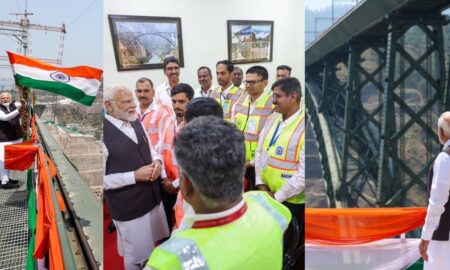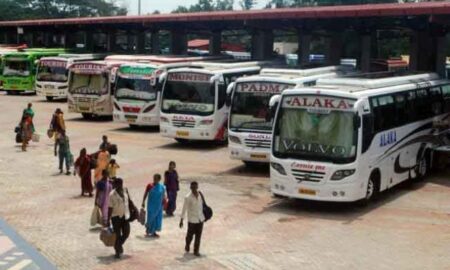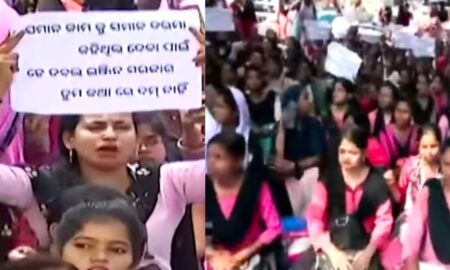More in Affairs Now
-
Free 2 tractor sand to beneficiaries by Govt to build houses !
Share the newsPradhan Mantri Awas Yojana beneficiaries will get sand for free. The government will provide two tractors of sand for...
June 7, 2025 -
Elon Musk is interested for a new political party in US !
Share the newsThe strong relationship between Elon Musk and Donald Trump has suddenly become strained. Musk previously attended Donald Trump’s cabinet...
June 7, 2025 -
World’s highest Chenab Railway Bridge inaugurated by PM Modi
Share the newsPrime Minister Narendra Modi inaugurated the Chenab Bridge. This railway bridge is the world’s highest arch-shaped railway bridge. Chenab...
June 6, 2025 -
Neglected primary teachers are roaring on the streets for their demands
Share the newsNeglected primary teachers are roaring on the streets for their demands. The government should lift the contract system. Make...
June 6, 2025 -
Environmentalist Medha Patkar detained ; Says I am not Terrorist
Share the newsRenowned environmentalist Medha Patkar was picked up by the police in Rayagada while she was on her way to...
June 5, 2025 -
TMC MP Mahua Moitra marries BJD leader Pinaki Misra in Germany
Share the newsTrinamool Congress MP Mahua Moitra has reportedly tied the knot with senior BJD leader and four time MP of...
June 5, 2025 -
Virat Kohli’s Dream Comes True: RCB Lifts IPL Trophy
Share the newsRCB finally wins it ! After 18 long years, Royal Challengers Bengaluru lifted their first-ever Indian Premier League (IPL)...
June 4, 2025 -
In Digital Transformation Utkal Hospital Becomes First Healthcare Institution in East India
Share the newsBhubaneswar : Salesforce, the world’s no 1 AI CRM, today announced its collaboration with UtkalHospital, the largest stand-alone private-sector...
April 25, 2025 -
Teacher Development Training Program Was Inaugurated in Rama Devi Women’s University
Share the newsUnder the chairmanship of Professor Aparajita Chowdhury, Chancellor of Ramadevi Women’s University, a five-day training program titled “An Orientation...
August 5, 2024














